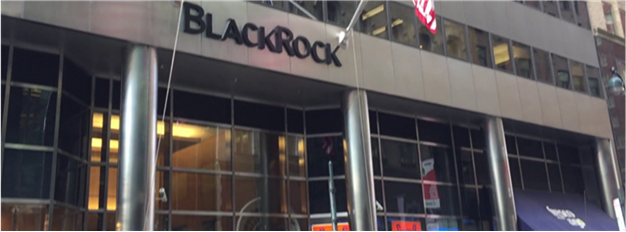
|

|

|

|

What Does the Fed Purchasing ETFs Mean for Equity Investors?
In a surprise announcement late Monday, the markets learned the Federal Reserve would begin buying exchange-traded funds holding corporate bonds. This has never been tried before. The intent of the Fed is to support the credit markets which are distressed by the economic strains from the economic slowdown orchestrated in response to the novel coronavirus.
With no prior notice, market participants heard of this program, which starts as early as today, after the stock exchanges closed yesterday. That’s when investors learned of the details of the central bank’s plans to purchase U.S.-listed ETFs whose investment objective is “to provide broad exposure to the market for US corporate bonds.” The latest corporate bond program comes after a plethora of issuance as companies seek to raise capital to keep operations alive amid the slowdown.
Implementation
Purchasing funds rather than securities has never before been part of the Fed’s arsenal of open market tools to impact economic balance. The decision to use ETFs was in large part because the central bank recognized this was a much faster and broader way to inject money rapidly into the credit markets. The announcement included word that asset management company Black Rock was awarded the responsibility of implementing the strategy.
This is the second bond purchase program announced by the Fed this year. Its companion program uses the Primary Market Corporate Credit Facility, where the Fed will be buying the actual bonds as well as syndicated loans. That program is scheduled to start soon.
What this means for investors
The central bank through Black Rock will buy up ETFs that hold so-called investment-grade bonds and so-called fallen angel bonds of companies that formerly had been classified as investment grade but have been downgraded to speculative or junk. It will especially look for situations where those downgrades happened due to the coronavirus crisis. The New York Fed will be supervising the program.
Possible Impact on Equities:
- Demonstrates a resolve that suggests the financial markets are “too big to fail.”
- Provides less expensive money for corporations to fund their operations.
- Although not a direct participation in equities, the Fed’s purchases indirectly creates the potential for billions to flow into stocks by pushing bond prices higher.
- Opens the door for the fed to participate in other asset classes such as US stocks.
- May overvalue securities within funds that would then be hurt when the Fed begins to “mop up” after the strategy is no longer needed.
- The US bond market by some measures is twice as large as the US stock market. As a taxpayer, you are now lenders to the US companies, many of which have international operations.
Recent issuance of corporate debt has exploded. Through April, there has been an increase of $834.3 billion or 69% year to date over the same period last year. A total of $25.7 billion flooded the market Monday of this week.
The bond market functions very differently than the stock market in that a corporation may have many different issues with varying maturities and covenants. Availability and pricing information is not as clear either as it is a true negotiated market where not all issues trade every day. This makes ETFs a simpler answer for the Fed to impact the overall price levels without creating serious disruptions in valuing securities with similar attributes.
Take-Away
The Fed has also targeted near-zero interest rates on short-term debt and purchased large amounts of Treasury and mortgage bonds, swelling its balance sheet to $6.7 trillion, from $3.8 trillion last September. This extra cash in the investment markets surely will impact all asset prices now and when they unwind their positions down the road.
Suggested Reading:
Federal Reserve Board Chairman Powell’s Resolve on Display
The Pitfalls of Index Funds
Demonstrated During Pandemic Selloff
Why Index Funds Could be a Mistake in
2020
Enjoy Premium Channelchek Content at No Cost
Sources:
The Federal Reserve will start buying ETFs on Tuesday.
Here’s how to ride its coattails
Fed Says It Will Begin Buying Corporate-Debt ETFs on Tuesday
INVESTMENT
MANAGEMENT AGREEMENT (SECONDARY MARKET CORPORATE CREDIT FACILITY)
The corporate
bond market has been on fire during the coronavirus crisis
The Fed thawed debt market and big companies built a
$500 billion war chest